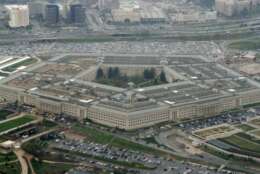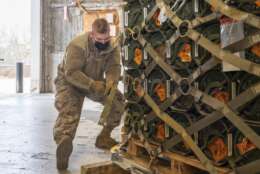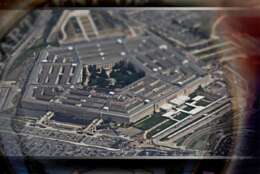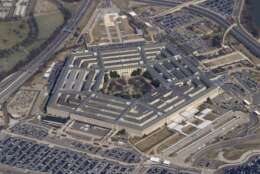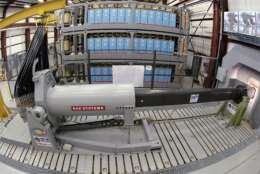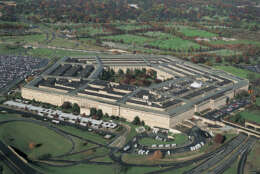Defense Industry
-
“DoD is deeply committed to building domestic capacity and capability and growing our economy, creating U.S. jobs and strengthening our national security,” said Justin McFarlin, deputy assistant secretary of defense for industrial base development and international engagement, at ComDef23, ahead of the release of the first defense industrial strategy.
October 26, 2023 -
The National Armaments Consortium is a coalition of industry groups, whose members work on the next generation of ordnance and the energetics that power them.
October 16, 2023 -
Cyber companies were left holding the bag of bid and proposals costs to the tune of hundreds of thousands of dollars when the Air Force abruptly cancelled a huge multiple award contract.
October 03, 2023 -
John Tenaglia, the director defense contracting and pricing at the Defense Department, said House and Senate armed services committee lawmakers asked for feedback on about 40 different potential acquisition provisions in the 2024 defense bill.
September 28, 2023 -
The initial awards, worth $238 million, went to the future operators of eight “hubs” DoD is establishing as part of its Microelectronics Commons program.
September 21, 2023 -
An unclassified summary of DOD’s new cyber strategy offers few specifics as it outlines plans to protect the industrial base and improve technology used in cyber defense.
September 12, 2023 -
U.S. Pacific Command’s new directorate will team up with DIU to advance some of its vital technology-driven initiatives.
September 01, 2023 -
A DoD project to develop new technology for the combatant commands will prioritize the Indo-Pacific Command.
August 30, 2023 -
With a new initiative to build unmanned systems, the Pentagon wants to scale up fast with smaller, cheaper design.
August 28, 2023 -
Lily Zeleke, the deputy chief information officer for the information enterprise at DoD, said the move to the Joint Warfighting Cloud Capability is as much about taking advantage of enterprise services as it is about not breaking mission outcomes.
August 15, 2023 -
Melissa Vice, the director of the Department of Defense’s Vulnerability Disclosure Program, said the 12-month voluntary pilot with defense contractors found vendors faces similar challenges as the department in securing their networks.
August 14, 2023 -
The proposed House and Senate NDAA bills have language to create new oversight and accountability for defense contractors.
August 07, 2023 -
Danielle Moyer, the executive director of the Army Contracting Command at Aberdeen Proving Ground, said during her first few months on the job, she created a review team to figure out how to shorten the timeline to award contracts.
August 01, 2023 -
A plan to have the intelligence community and the Defense Department share secret cloud services takes both organizations closer to a goal of interoperability.
July 20, 2023 -
National Security Innovation Capital is maturing as an investment fund with more hardware startups in its portfolio, and ambitious plans to expand its reach.
July 07, 2023

